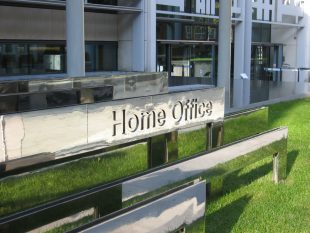On 19 February 2020, the Government published a policy statement setting out details of the UK’s points-based immigration system.
These new arrangements will take effect from 1 January 2021, once freedom of movement with the European Union (EU) has ended. They treat EU and non-EU citizens equally and aim to attract people who can contribute to the UK’s economy. Irish citizens will continue to be able to enter and live in the UK as they do now.
What is a points-based immigration system?
Under a points-based immigration system points are assigned for specific skills, qualifications, salaries or professions. Visas are then awarded to those who gain enough points.
Will EU citizens need a visa to visit the UK?
EU citizens and other non-visa nationals will not require a visa to enter the UK when visiting the UK for up to 6 months. All migrants looking to enter the UK for other reasons (such as work or study) will need to apply for a visa in advance.
EU citizens, along with citizens of Australia, Canada, Japan, New Zealand, the USA, Singapore and South Korea - with biometric passports - will continue to be able to use automatic eGates to cross the UK border.
What is the new skilled worker route?
A new skilled worker visa will prioritise migrants with the highest skill-levels and the most experience. Someone will be able to apply for this visa if they’ve been offered a skilled job in the UK by an approved employer sponsor.
Following recommendations from the MAC, we have lowered the skills threshold for skilled workers to provide employers with added flexibility.
From January 2021, the job will need to be at a required skill level of RQF3 or above (equivalent to A level). They’ll also need to be able to speak English and pass criminality checks. The minimum salary threshold will be reduced to £25,600.
If a person earns less than this - but no less than £20,480 - they may still be able to apply by ‘trading’ points on specific characteristics against their salary. For example, if they have a job offer in a shortage occupation or have a PhD relevant to the job.
What about highly skilled workers?
From January 2021 the global talent route will be opened up to EU citizens. The route has recently been reformed, removing the cap on numbers, increasing the number of endorsing bodies and rebranded to maximise the attractiveness of this offer.
In addition, the route has been expanded to include a new fast-track scheme for top scientists and researchers to come to the UK without a job offer.
In line with the recommendations from the MAC, we will create a broader unsponsored route within the points-based system to run alongside the employer-led system. This will allow a smaller number of the most highly skilled workers to come to the UK without a job offer.
Will there be a low-skilled worker route?
The new immigration system will not include an immigration route specifically for low-skilled workers. This will shift the focus of the UK’s economy away from a reliance on cheap labour from Europe and instead concentrate on investment in technology and automation.
EU citizens resident in the UK by 31 December 2020 can still apply to settle in the UK through the EU Settlement Scheme until June 2021. The Seasonal Workers Pilot scheme will also be expanded from 2,500 to 10,000 places recognising the significant reliance the agricultural sector has on low-skilled temporary workers.
What will change for international students and graduates?
Student visa routes will be opened up to EU citizens. A person will be able to apply for a visa to study in the UK if they have been offered a place on a course, can speak, read, write and understand English and have enough money to support themselves and pay for their course.
A new graduate immigration route will be available to international students who have completed a degree in the UK. They will be able to work, or look for work, in the UK at any skill level for up to 2 years.
Get email updates on the new immigration system
Sign up here to stay informed: gov.uk/new-immigration-system

